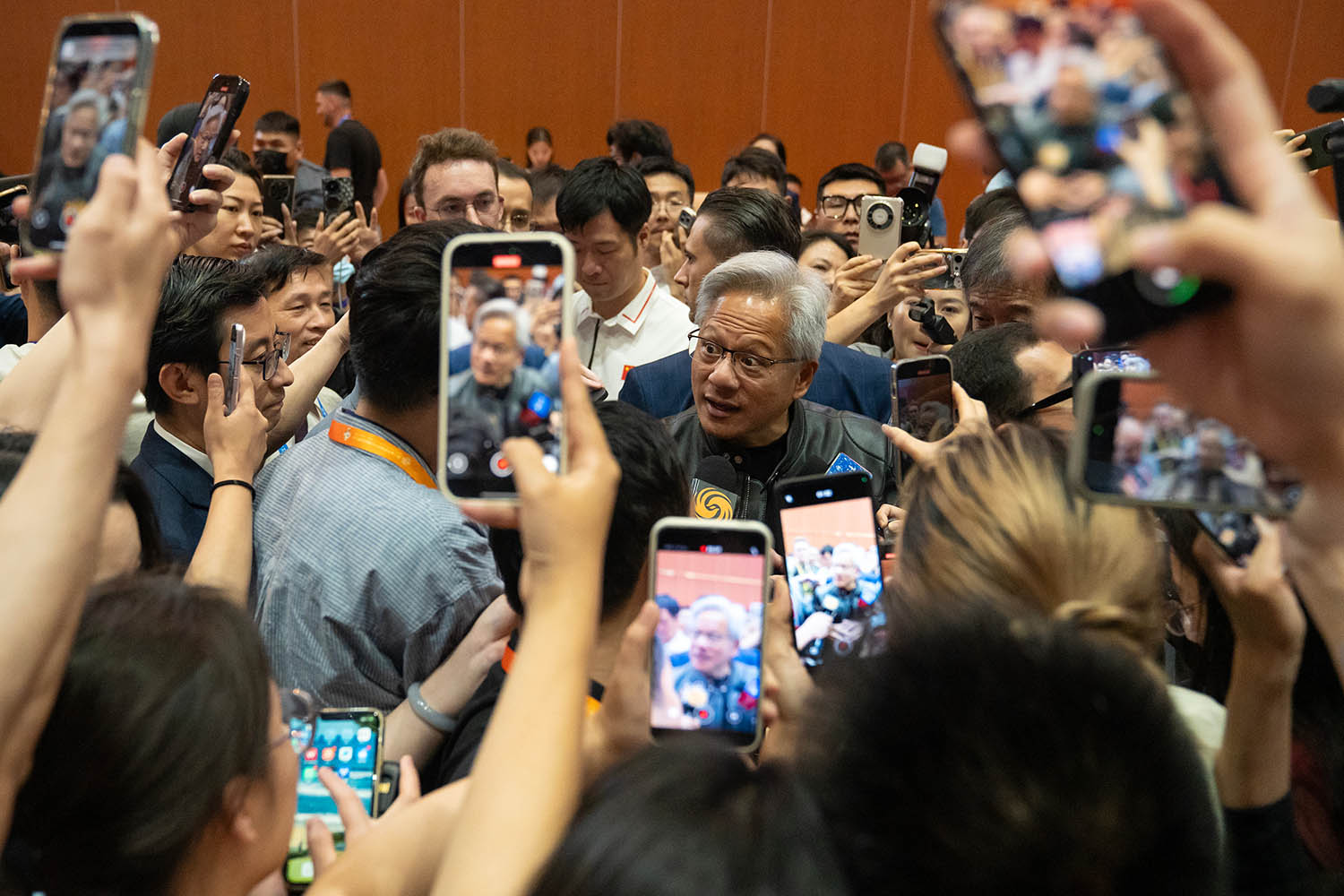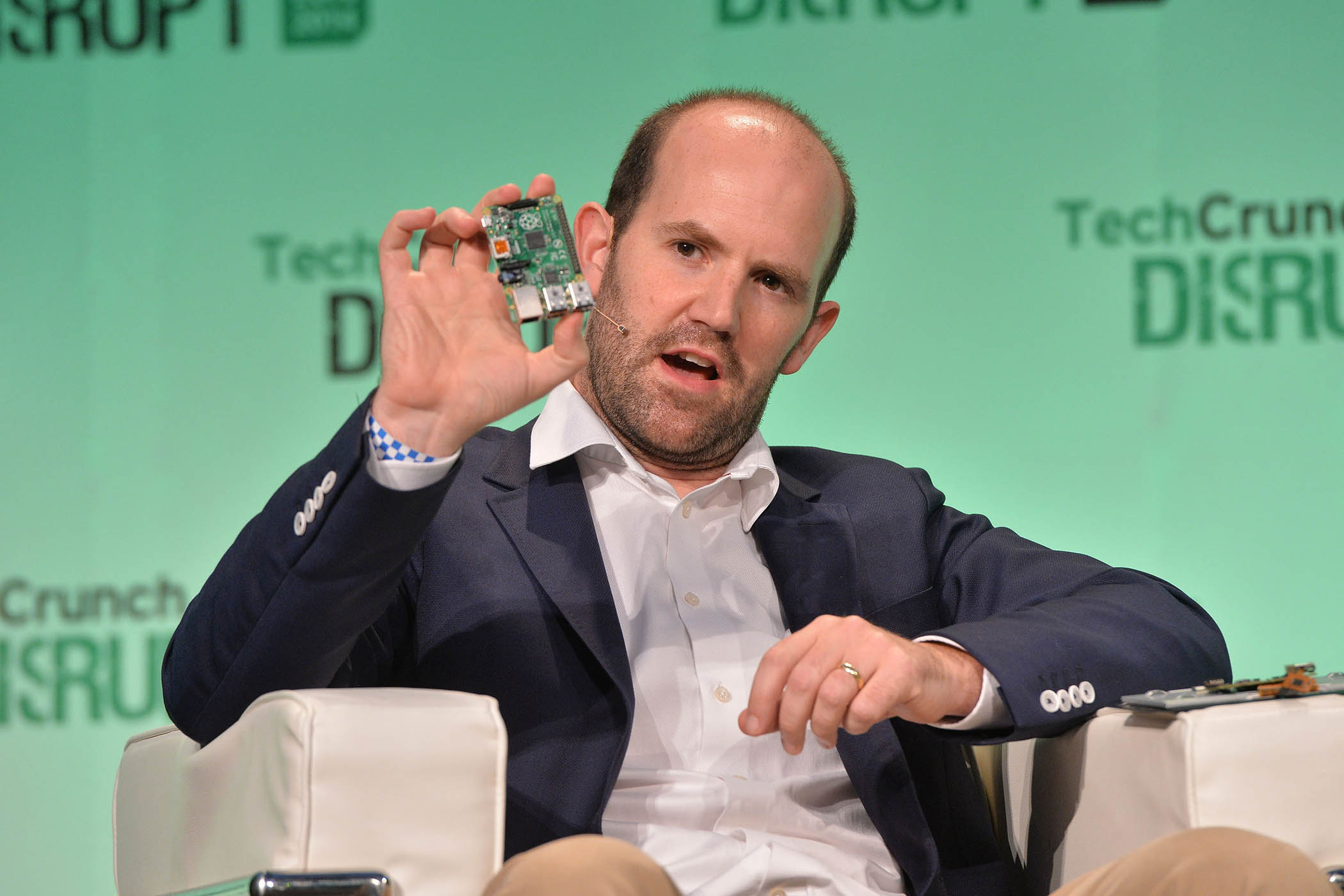Twenty years ago, Nvidia was a company making specialised graphic cards to improve the visuals of video games, with a total valuation of around £6bn. Within about a decade, Nvidia’s microchips had become the backbone of the boom in cryptocurrency mining and data centre industries, which helped push its market value to more than £200bn.
Today, Nvidia is the most valuable publicly traded company in the world, with a market cap of more than £3.2tn – a more than tenfold increase in just five years. The reason for this is that Nvidia’s chips are the foundation of the AI boom, being almost the only hardware option for AI companies that are not big enough to manufacture their own chips.
Nvidia’s chips are widely used in the training of top-end AI models and in the data centres being built around the world for their widespread deployment. As a result, demand for its chips is soaring. In its results announcement this week, the company revealed sales in the past three months of $46.7bn (£34.5bn), up 56% in just a year. It is also immensely profitable: Nvidia’s gross margins are in excess of 70%, and its net profits for the quarter totalled $26.4bn (£19.5bn).
Because Nvidia mainly sells to other businesses, it has not become a household name in the same way as other tech giants, but it is valued higher than any of them: its market cap exceeds Apple’s by £700bn, Google’s by £1.3tn, and Meta’s by £1.9tn.
However, there are concerns that the company’s meteoric rise could be mirrored by almost as rapid a fall. Nvidia is not itself an AI company, but almost all of its major customers are, and there are widespread fears even among insiders that an AI crash is on the way.
An AI crash might come even if AI is a viable and transformative innovation. The first dotcom crash of 2000 did little to slow the adoption of the internet as a dominant new technology, but it did lead several leading companies to bankruptcy and wipe out their investors.
The specific concern around Nvidia’s business is that companies are building more data centres – and buying more chips – than they will need, or be able to afford, in the future. Praetorian Capital Management CEO Harris Kupperman estimates that AI data centre spend globally will hit around $400bn in 2025, a cost that will have to be accounted for through depreciation over 10 years. Even allowing for a generous profit margin of 20%, he calculates, this would require AI companies to make $160bn a year in revenue, a tenfold increase on current sales, every year for the next decade – just to pay off 2025’s investment alone.
During the first dotcom boom, companies spent billions on cabling infrastructure to facilitate the internet’s expansion, which proved vital – and which is still in use today – but lost a fortune doing so.
Global Crossing, the leading fibre-optic company from that era, lost 97% of its peak valuation in just two years, according to analysis by Kupperman, who warns that investment in data centres may be well beyond rational levels.
Newsletters
Choose the newsletters you want to receive
View more
For information about how The Observer protects your data, read our Privacy Policy
“Today, I watch in awe (stupefaction, really), as companies continue to throw endless resources at AI,” he wrote, calling Global Crossing the Nvidia of its era. “I really thought that the CEOs of today, educated with the lessons of the prior cycle, would never repeat the mistake of overbuilding at massive scale without revenue. Yet, here we are again.”
Nvidia also faces ongoing political challenges, thanks to its role selling chips essential to AI globally, which places it right in the centre of the ongoing US-China trade war. The US has repeatedly sought to restrict sales of Nvidia’s chips to China, but the company’s position is further complicated by its supply chain.
Many of the company’s components are sourced from Taiwan, which has unparalleled ability to manufacture advanced chips, and Nvidia’s founder and CEO Jensen Huang is a Taiwanese-American. Huang is currently negotiating with Donald Trump over whether Nvidia can sell chips to China, with an offer on the table to give the US government a slice of the revenue if sales can restart.
Whatever its long-term prospects, Nvidia is certainly confident the AI boom has some way to go. For the next three months, it predicts that even if it is allowed to make no sales to China, its sales will reach $54bn (£40bn) in the next quarter. Not bad for a business set up to help make video games look good.
Photograph by Andrea Verdelli/Bloomberg via Getty Images



